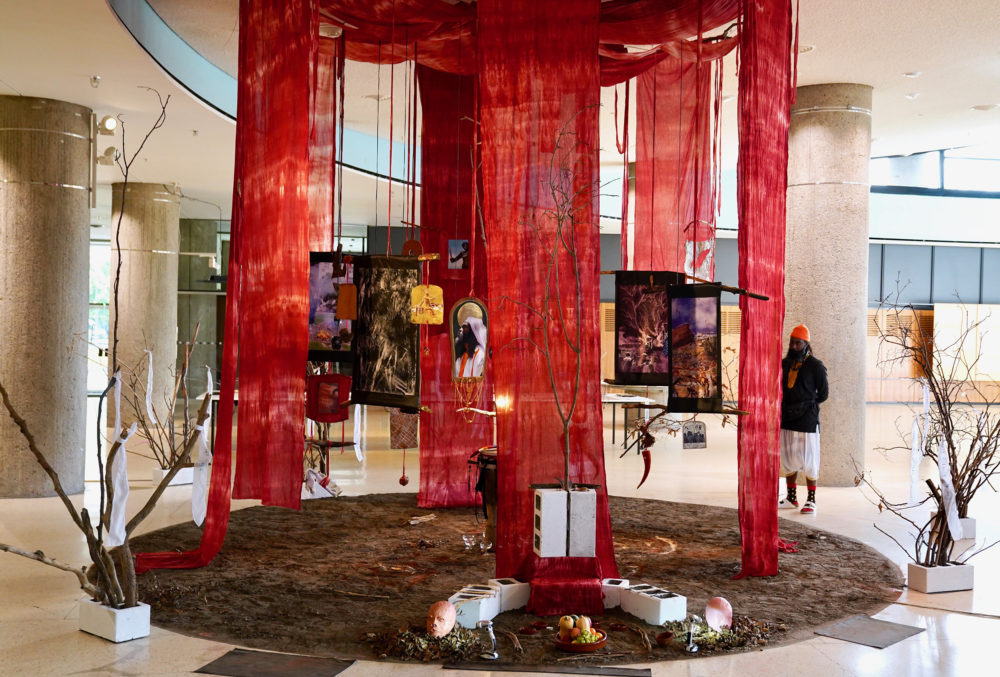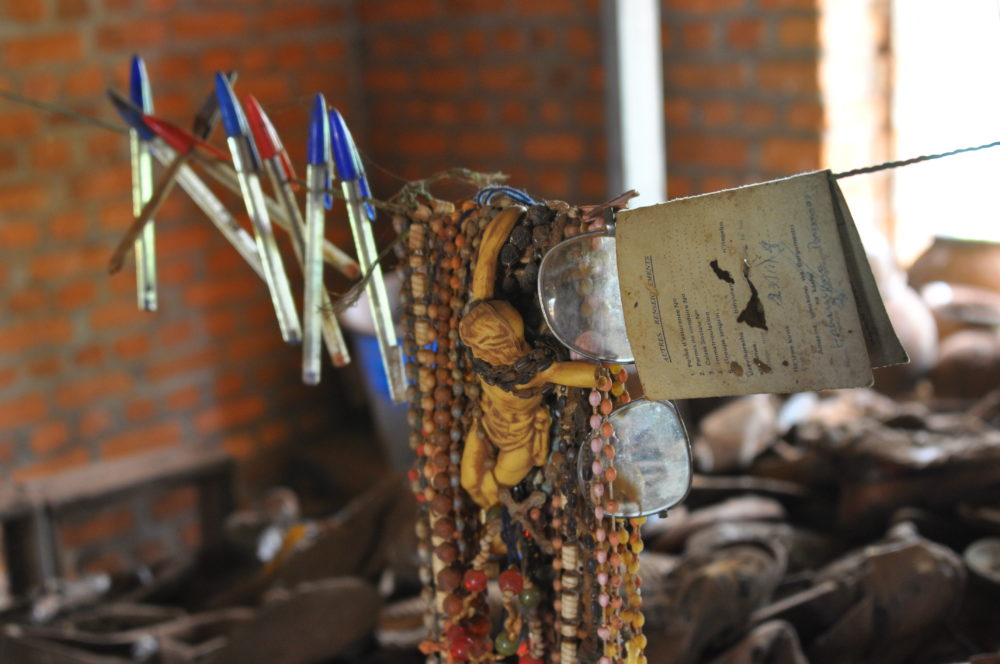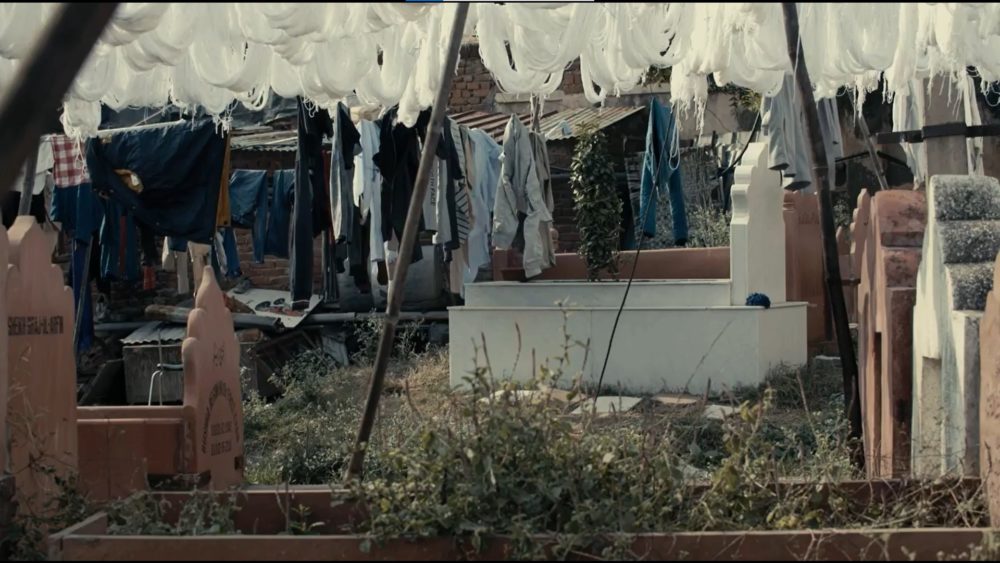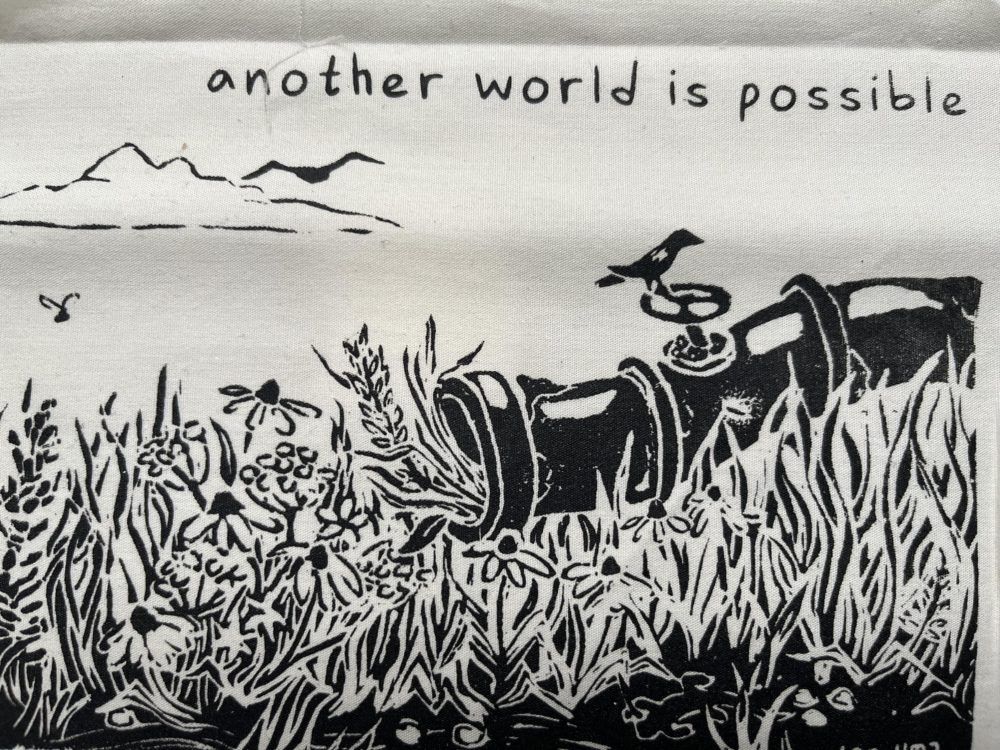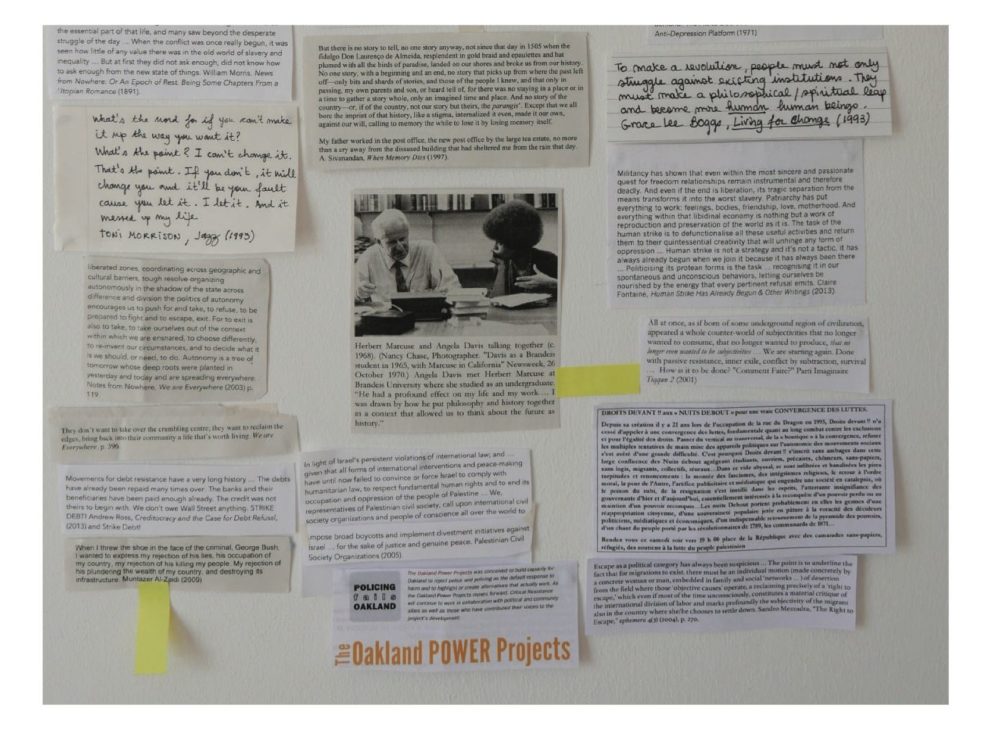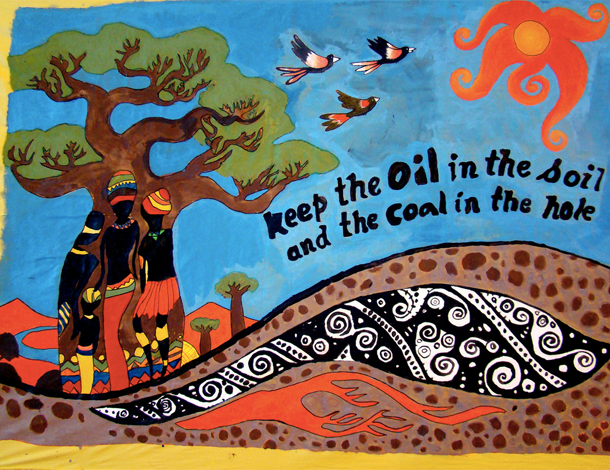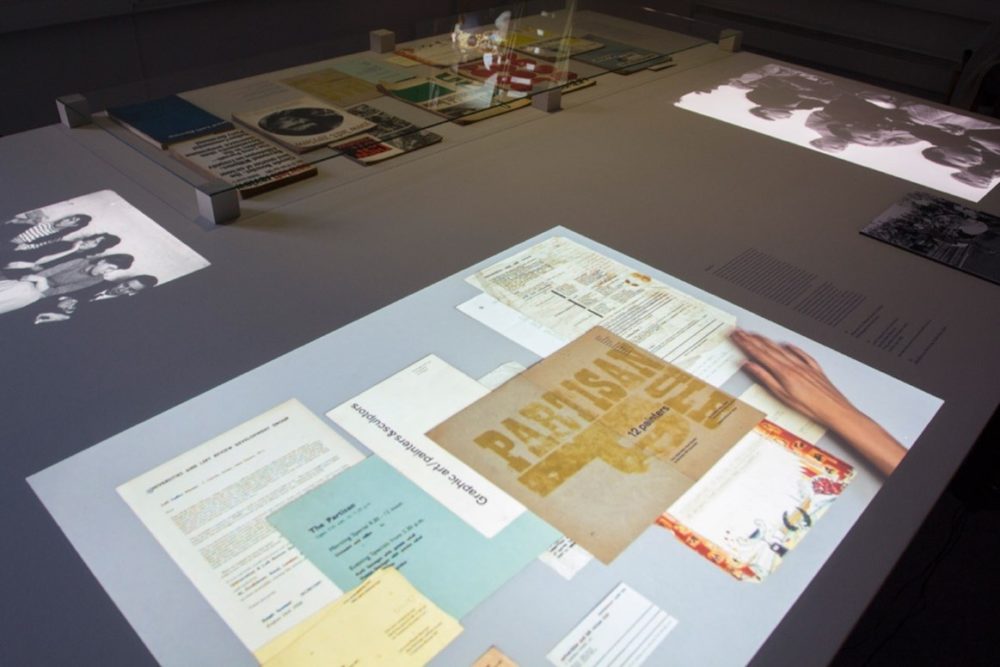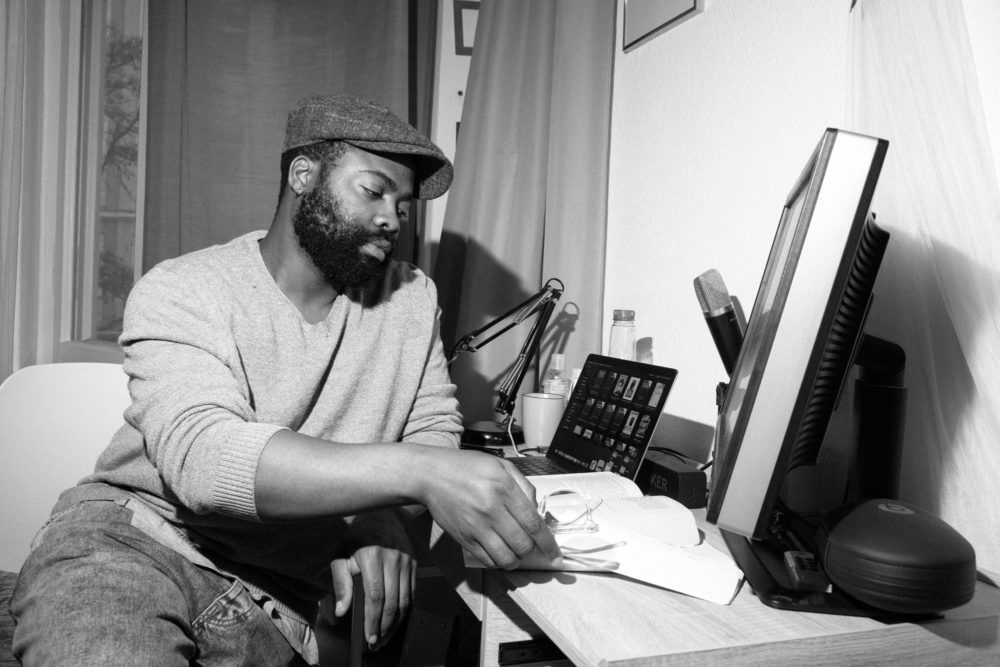What could a school look like that seeks to make both learning and unlearning a common interrelated practice? How can a space be built around care, refuge, implication and vulnerability, negotiating positions and responsibilities? How can privileges and habits of hierarchy be challenged, as well as authorship, productivity and competition? And how could such a school take place inside an institution and carve space for informal, convivial, horizontal modes of participation within it, allowing for gaps, mistakes and areas left open. In the twelve editions of the New Alphabet School, thinking of knowledge as part of the commons, the roles of curators and audience blurred and reverted in order to co-create shared space for networked knowledge.
As Fred Moten and Stefano Harney suggest in The Undercommons: Fugitive Planning & Black Study, “one can only sneak into the university and steal what one can.” The New Alphabet School sought to reflect on such a suggestion via fugitive encounters and instances of study as a coming and doing together. In this final edition on COMMONINGS, the invitation is to carry on questions and incomplete dialogues, sharing practices from the previous editions, the multiple locations, and the different perspectives that emerged in the last three and a half years. By convening again, we will explore together what these practices might institute, and how they might form an ephemeral school of commonings.
Facilitated by Olga Schubert, Gigi Argyropoulou, Alessandra Pomarico, Mahmoud Al-Shaer and Rahul Gudipudi.
With collective practices and workshops by all active New Alphabet School members.
With conversations between Silvia Federici and Peter Linebaugh, Avery Gordon and Natascha Sadr Haghighian, Irit Rogoff, Palagummi Sainath and Habib Ayeb, Majd Kayyal and Mahmoud Al Shaer and with performances by Mour Fall, Marinho Pina, Ivonne Gonzalez&Paulina Marquez, Transatlantic Sounds and others and installations by Pallavi Paul&Hajra Haider, Shareef Sarhan&Rana Batrawy, Mukhtara Yusuf, Kamran Behrouz, Júlia Ayerbe, Chto Delat, Meltionary, Field Narratives and others.
More information on the event
In an effort to comment on the research that motivated the installation “True stories of Resistance,” Cléophée R.F. Moser chose to elaborate on the context in which this project was imagined and the echoes that resonated between the members of the Fugitive Library during the Commonings event on the question of the power relations at stake around knowledge and memories in the institutional and post-colonial context. In this article, as an exhibiting artist in the Fugitive Library, Cléophée retraces the content of this collective experience by offering a personal analysis of the interventions that were proposed, and the creative methods developed in response to this issue.
read moreIn this piece, Małgorzata Wosińska reflects on the topic of genocidal trauma and war both in relation to the Holocaust and in relation to the 1994 Rwanda genocide. Looking at the intersecting points of the psychoanalytical or representative image of Cultural Trauma Studies, this work attempts to move beyond a “Western” perspective, thereby necessitating a reflection on decolonial paradigms of Trauma Studies, but also of Museum Studies and Art. How can the critical and auto-reflectional potential of Trauma Studies and Comparative Genocide Studies constitute an essential tool to reevaluate the framework of humanitarian action in the arts? How can non-European cases of genocide teach people an embodied, emancipating perspective for collective trauma healing? Is it possible to understand the Holocaust as a living anthropological experience, and not only as a sacralized historical event that is “frozen” in time?
read moreOver the last two years of the global COVID-19 pandemic, the ‘breath’ has moved from being a recessed biological function to a palpable collective act. To breathe is to avow the élan vital. The time of the breath then is a sensorial, spiritual, political, scientific and historical time. This short and felt interval also poses a unique challenge to the act of filming. How does one produce an image for something that is present but invisible? The chasm between sensation and representation becomes instantly perceptible. The unrepresentability of breath swells further as it weaves across various bodies, landscapes and stories. Similarly to the practice of commoning, the aim is not to make these stories translatable in coming together, but rather push the boundaries of knowledge without capturing them. The split second of the breath is also a splitting of the osmotic edges of cinema. In a climate when images and the people they encounter are heaving, film frames and edits straddle a delicate boundary between inspiration (breathing in) and expiration (breathing out). To produce a breathable cinematic time is now layered with echoes of life, imagination, disappearance and death.
read moreIn this piece by Peter Linebaugh, he makes the argument that the unwaged, the working class and those who contribute their labor in forms that have gone unnoticed, ought to be the ones at the forefront of the battle for land and water rights.
read moreThe Hawthorn Archive, named after the richly fabled tree, has long welcomed the participants in the various Euro-American social struggles against slavery, racial capitalism, imperialism, and authoritarian forms of order. The Archive is not a library or a research collection in the conventional sense but rather a disorganized and fugitive space for the development of a political consciousness of being indifferent to the deadly forms of power that characterize our society. Housed by the Archive are autonomous radicals, runaways, abolitionists, commoners, and dreamers who no longer live as obedient or merely resistant subjects. In this excerpt from her 2018 book, Avery F. Gordon presents a selection of documents—original and compelling essays, letters, cultural analyses, images, photographs, conversations, friendship exchanges, and collaborations with various artists.
read more“Most importantly, we cannot build an alternative society and a strong self-reproducing movement unless we redefine our reproduction in a more cooperative way and put an end to the separation between the personal and the political, and between political activism and the reproduction of everyday life.”
read moreIrit Rogoff, founder of the Advanced Practices program at Goldsmiths, London, investigates knowledge production coming out of the arts, museums, galleries, NGOs, and protest movements not only as knowledge that is opening a dialogue with more traditional forms of academic or scientific knowledge. Rather she characterizes practice-based knowledge productions as “epistemic inventions” through their collective and multidimensional enactment and through their capcity to reflect instability, precarity, and insecurity rather than translate these conditions into stable and unwavering logics.
read moreIn an essay that undergirds the challenges and vulnerabilities of living under the thumb of a ‘Housing’ market that shuns and closes its doors to Black and Queer people, hn. lyonga proposes that the lack of housing prospects in metropolitan cities like Berlin can divert any and every chance of commoning.
read more